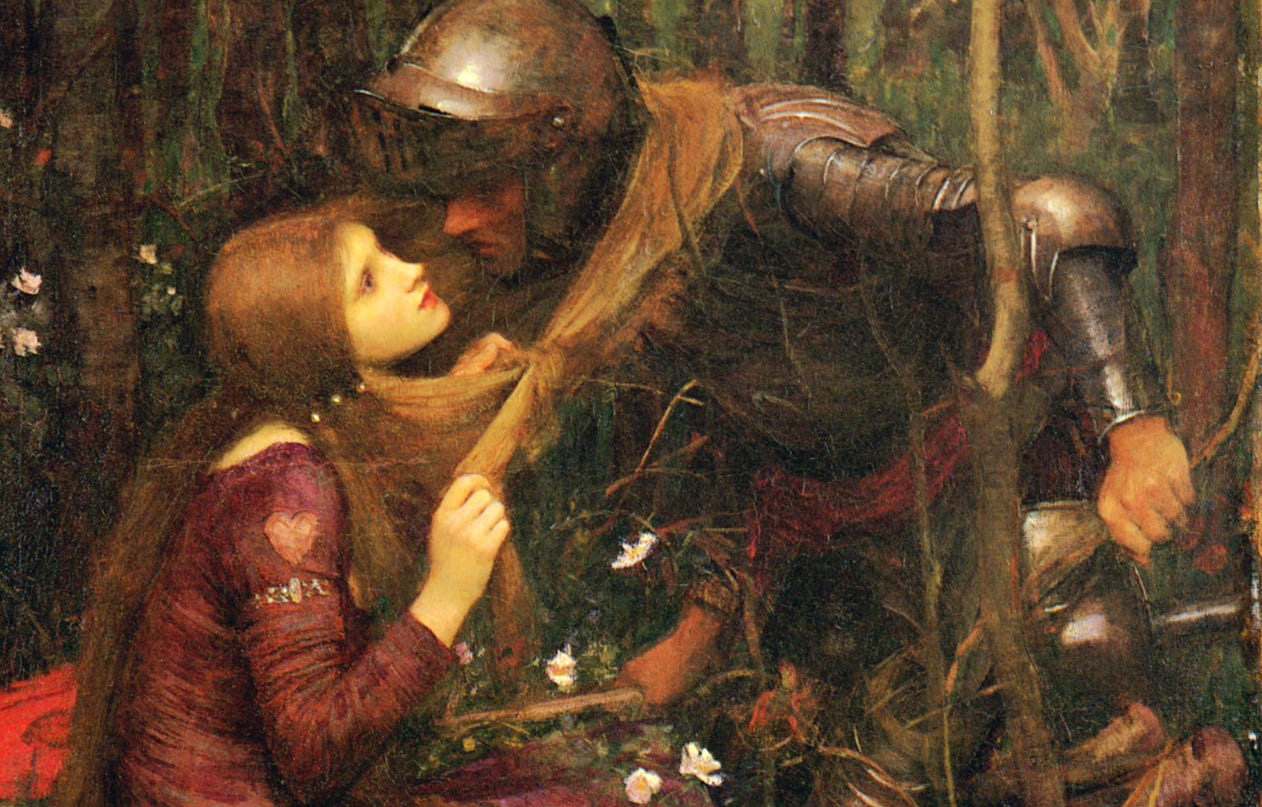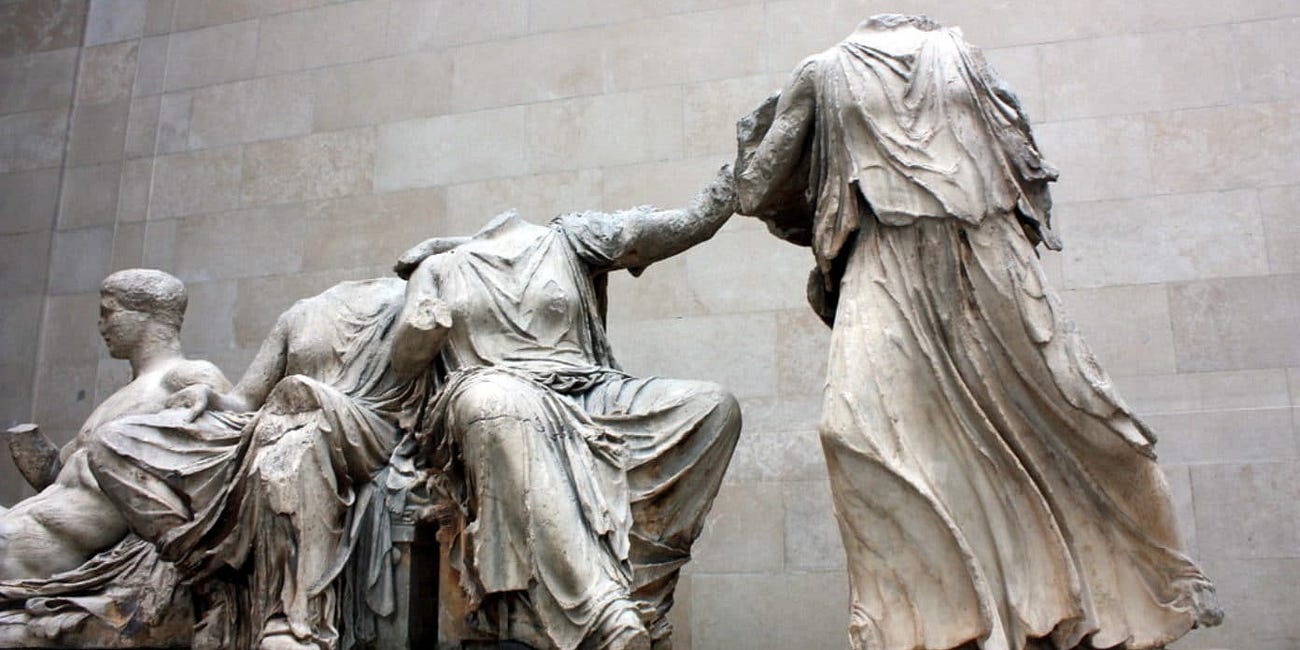“Imagination is more important than knowledge. For knowledge is limited, whereas imagination embraces the entire world, stimulating progress, giving birth to evolution.”
—Albert Einstein
Populations who aren’t in a disposition to receive beautiful and impassioned conceptions in the realms of the arts will seldom know how to pursue them in the real world. A nation which knows only how to think in literal terms—rather than in metaphorical and ironical terms—loses the ability to not only appreciate nuance in both thought and ideas, scripture and science, but loses the ability to discuss reality beyond mere sensory or statistical apprehensions of the world. Ultimately, such people lose the ability to wield the power of a creative imagination or make new discoveries.
No such people remains free for long.
The essential role of classical music and poetry is the fostering of a powerful creative imagination. Ironically, the ability to seek out and appreciate nuance in the artist and imaginative realms expresses at its heart a fundamental freedom to think and act creatively within the real world.
This freedom of creative thought is used by the great scientist who generates and investigates new hypotheses; it is the freedom of thought which stands in opposition to the anti-creative, homogenizing, and cage-like quality of popular opinion and mass culture.
Art, Metaphor and Epiphany
Originally published by UK Column The experience of great art is similar to the experience of a great scientific discovery. There is a common sentiment of “epiphany.” It is the strangely familiar feeling of remembering something for the first time, or having our attention fall on somethin…
One who thinks only literally has no ability to question his/her assumptions, has no power to investigate the underlying causes of his/her experience, and as a result, has little ability to affect meaningful change within the realm of reality. Today, rather than believe one can affect meaningful change in the hearts and minds of men, contribute something of value for posterity, or have a place in history an increasing number of the population is drawn towards a never-ending pursuit of novelty and “entertainment—new distractions and temporary respite from what otherwise appears a real-life nightmare. Indeed, an increasing number of individuals feel that they have been denied the joy of participating in any sort of higher meaningful function in society.
The role of poetry in a healthy society is to awaken the higher faculties of the human race. These higher faculties are one’s creative reason and the power of the human imagination, the ability to make discoveries and express poetical concepts that simultaneously transcend and engage the moment we inhabit. Through great poetry, such as the works of Homer, Dante, Shakespeare, Keats, Shelley, Edgar Allan Poe, to name a few, individuals are afforded the opportunity to explore the complexities of human nature and to seek out rather than run from the great paradoxes and mysteries which constitute our actual universe.
Rather than literal thinking, poets engage the minds of a population through irony and metaphor. This allows the human race to act in the universe with increasing levels of awareness in respect to the unseen laws and principles governing our sense-perceptual experience.
So, Shelley in his “Defence of Poetry” writes:
Poetry lifts the veil from the hidden beauty of the world, and makes familiar objects be as if they were not familiar; it reproduces all that it represents, and the impersonations clothed in its Elysian light stand thenceforward in the minds of those who have once contemplated them, as memorials of that gentle and exalted content which extends itself over all thoughts and actions with which it coexists.
A Defence of Poetry - Percy Bysshe Shelley
In his “Defence of Poetry” Shelley referred to this quality of thought as “impassioned conceptions respecting man and nature.” Through this “impassioned” awareness of our higher nature and a hidden nature within each of us—one which is not revealed directly through the senses—the species gains an ever-increasing power to act on those things which lie beyond the scope of a direct experience of the world, but which lie at the heart of our indirect experience of the principles and ideas governing the myriad expressions of an ever-changing and developing finite world. In a word: poetry serves as a source of inspiration which strengthens our imagination and develops our ability to think and act in non-literal and non-linear ways.
In the same defense, Shelley writes:
Poets, according to the circumstances of the age and nation in which they appeared, were called, in the earlier epochs of the world, legislators, or prophets: a poet essentially comprises and unites both these characters. For he not only beholds intensely the present as it is, and discovers those laws according to which present things ought to be ordered, but he beholds the future in the present, and his thoughts are the germs of the flower and the fruit of latest time.
A Defence of Poetry - Percy Bysshe Shelley
Without this essential quality of creative thought and ability to “lift the veil,” typified by musical or poetical thinking, some may succeed in describing the world as it is, but rarely imagine it to be other than it is, and rarely find themselves capable of conceiving new possibilities or here-to-fore unknown potentials already inherent and waiting in man. Whether it be the idea of space exploration, the theory of relativity or the discovery of the periodic table of elements, all such insights are the products of the creative imagination, rather than the result of simply directly interpreting sense data.
Shelley writes the following in his Defence of Poetry:
A poet participates in the eternal, the infinite, and the one; as far as relates to his conceptions, time and place and number are not. The grammatical forms which express the moods of time, and the difference of persons, and the distinction of place, are convertible with respect to the highest poetry without injuring it as poetry; and the choruses of Aeschylus, and the Book of Job, and Dante’s Paradise would afford, more than any other writings, examples of this fact, if the limits of this essay did not forbid citation. The creations of sculpture, painting, and music are illustrations still more decisive.
Thus, in respect to poetry’s role in the sciences, Shelley writes:
Poetry is indeed something divine. It is at once the centre and circumference of knowledge; it is that which comprehends all science, and that to which all science must be referred.
But without this poetical faculty, “science” becomes merely a religion of scientism, which in Shelley’s words becomes:
The cultivation of those sciences which have enlarged the limits of the empire of man over the external world, has, for want of the poetical faculty, proportionally circumscribed those of the internal world; and man, having enslaved the elements, remains himself a slave.
The One and the Many
Poetry must not only capture the changing, it must capture the unchanging. For, without knowledge of the infinite—the unchanging principles which govern our ever-changing experience of the universe—knowledge of the finite becomes absurd, meaningless. It is the human imagination which allows the species to grasp and wrestle with concepts of the infinite and change the conditions of the finite world. Without such faculties, there would be no possibility for human evolution, only manipulation of people and symbols. As Einstein stated himself, the creative imagination drives the “evolution” of the human species.
Keep reading with a 7-day free trial
Subscribe to Age of Muses to keep reading this post and get 7 days of free access to the full post archives.





